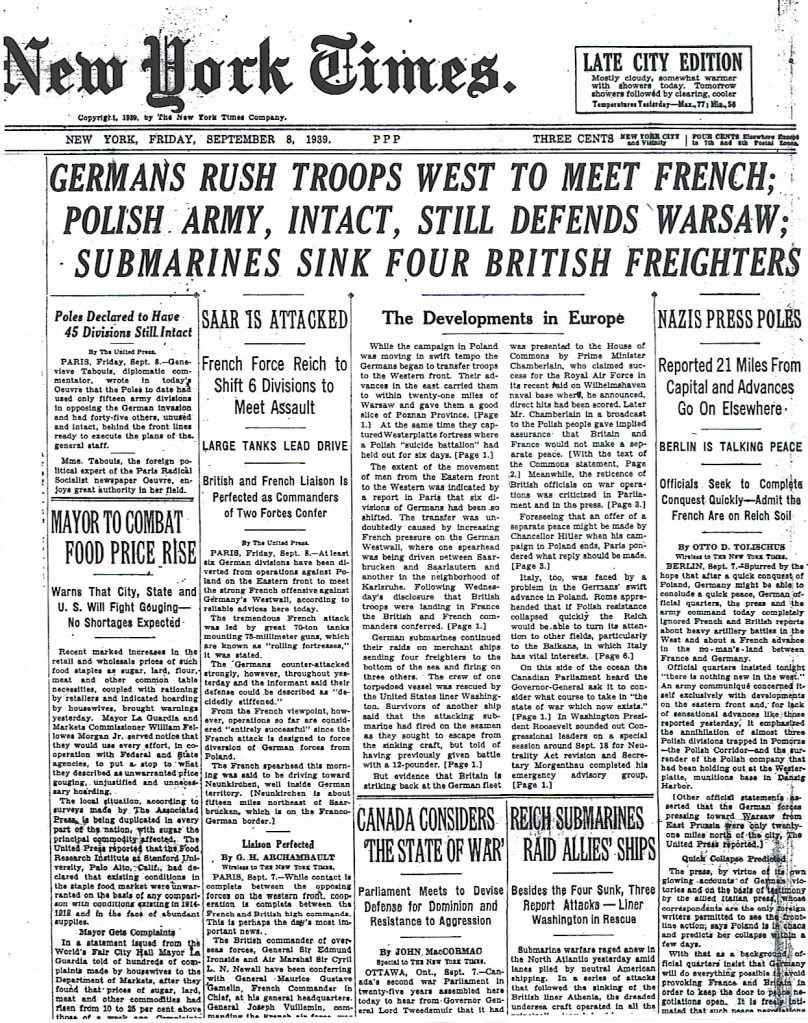
Posted on 09/08/2009 5:32:22 AM PDT by Homer_J_Simpson

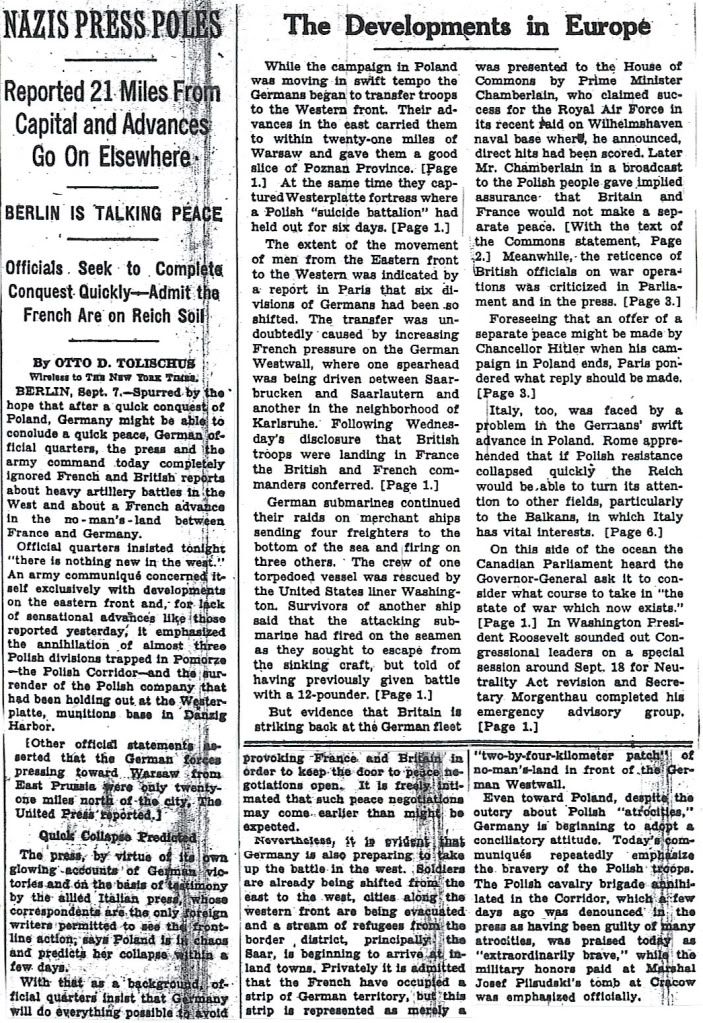
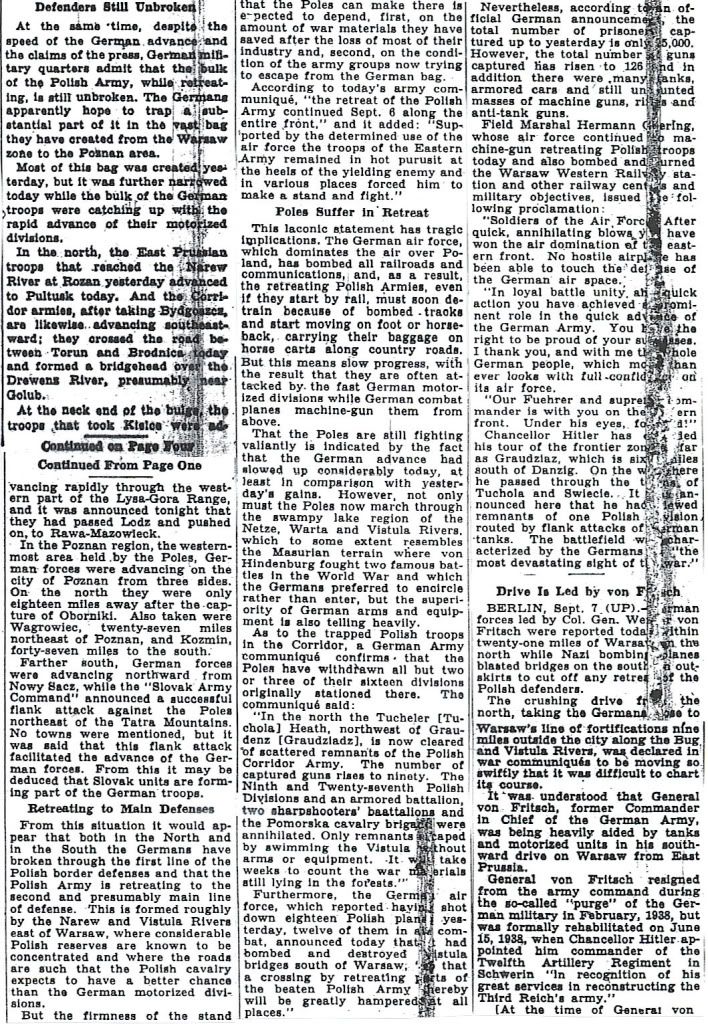
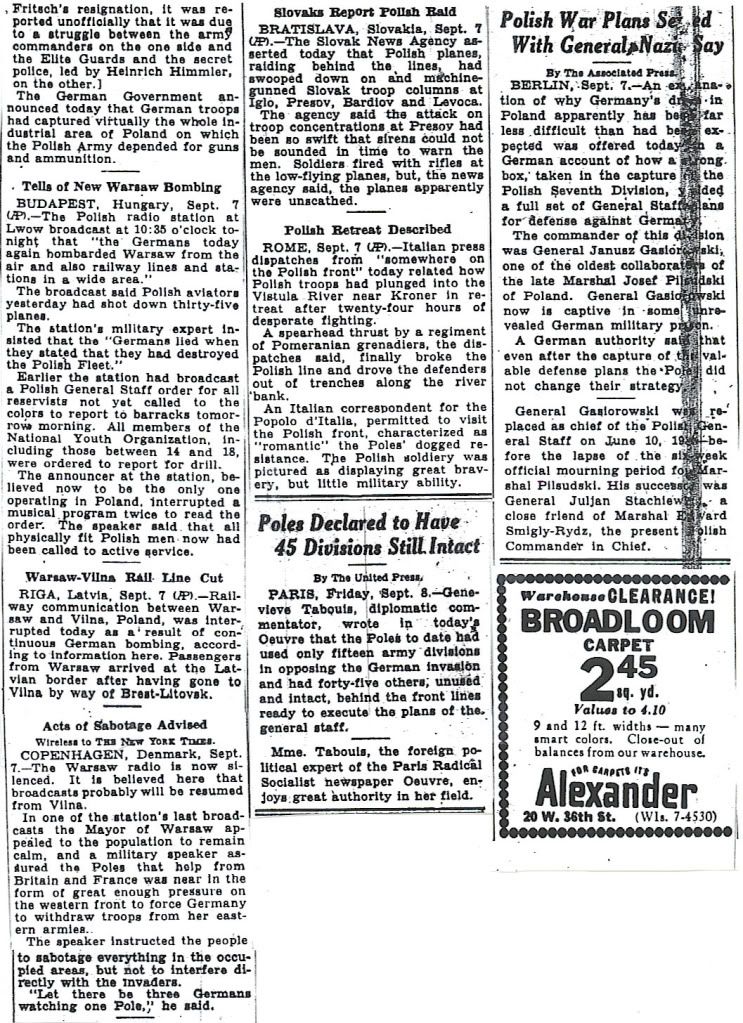

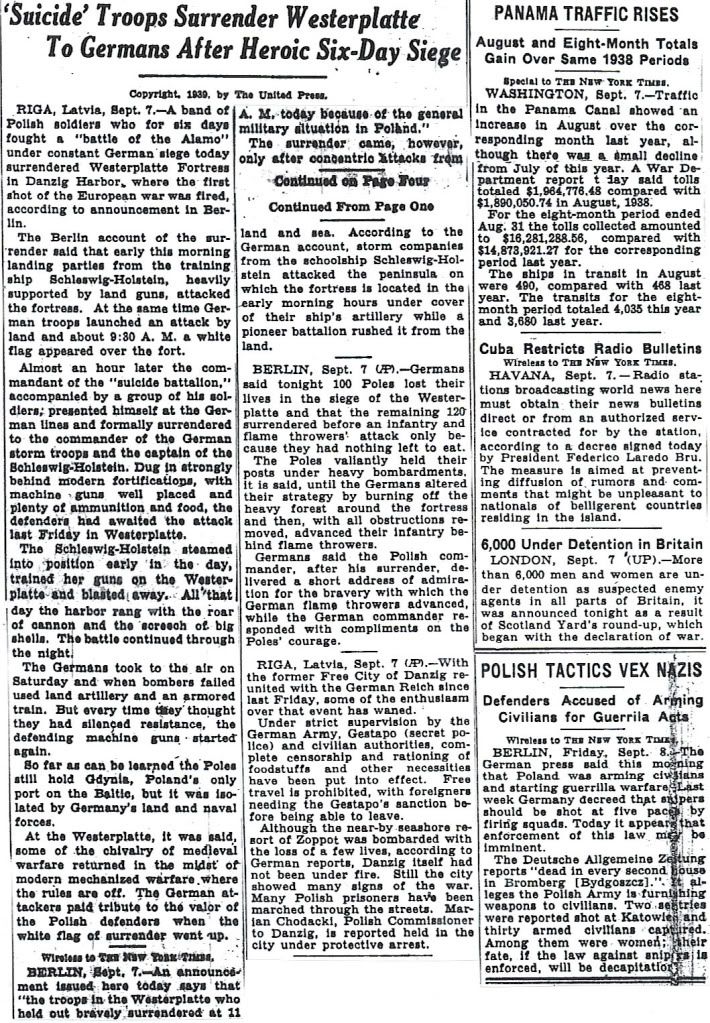
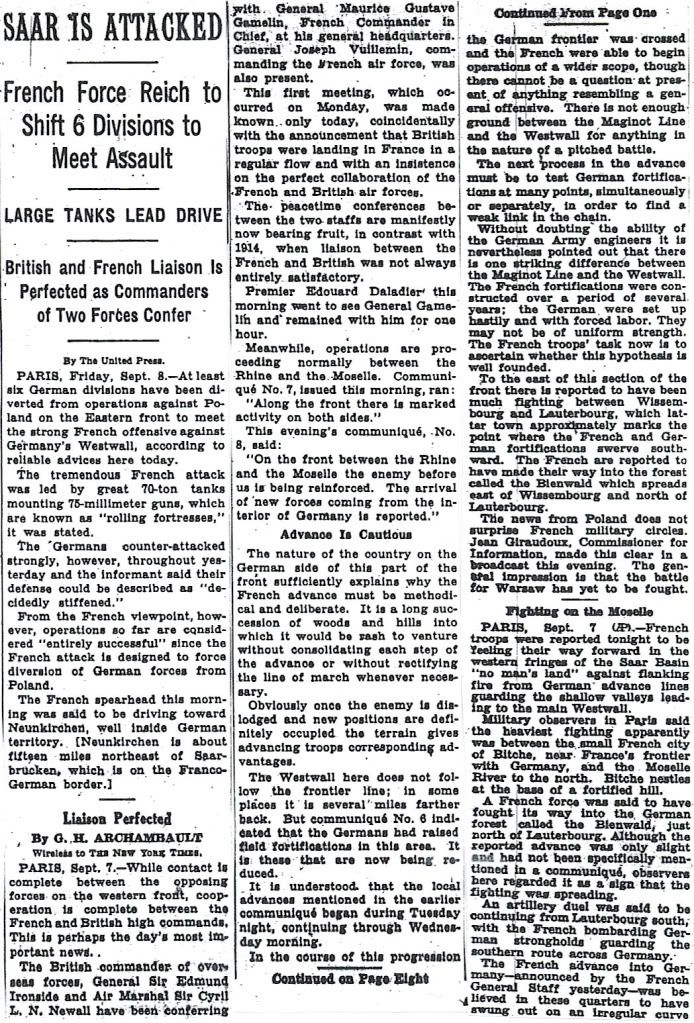
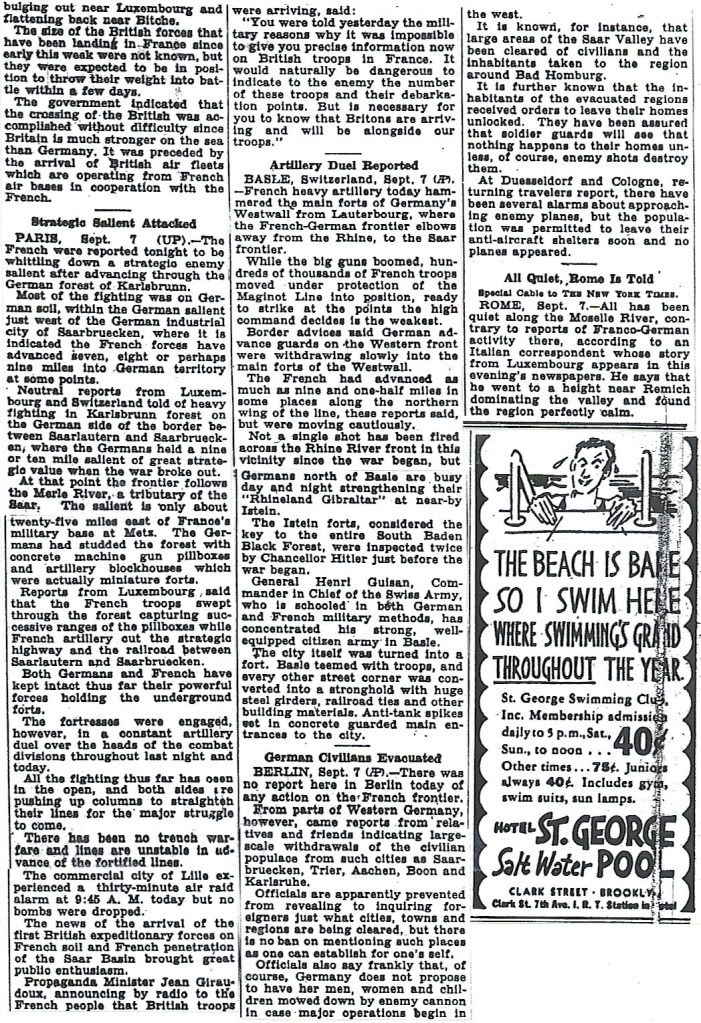
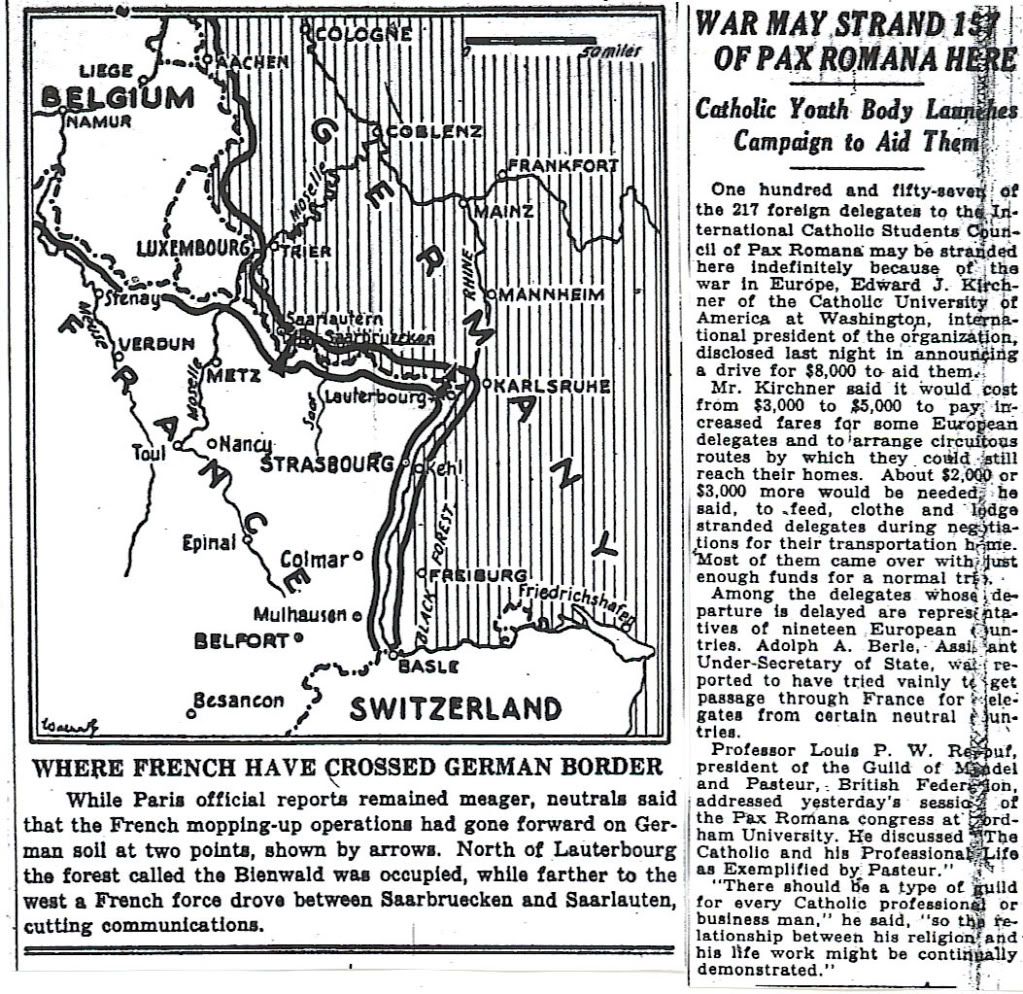
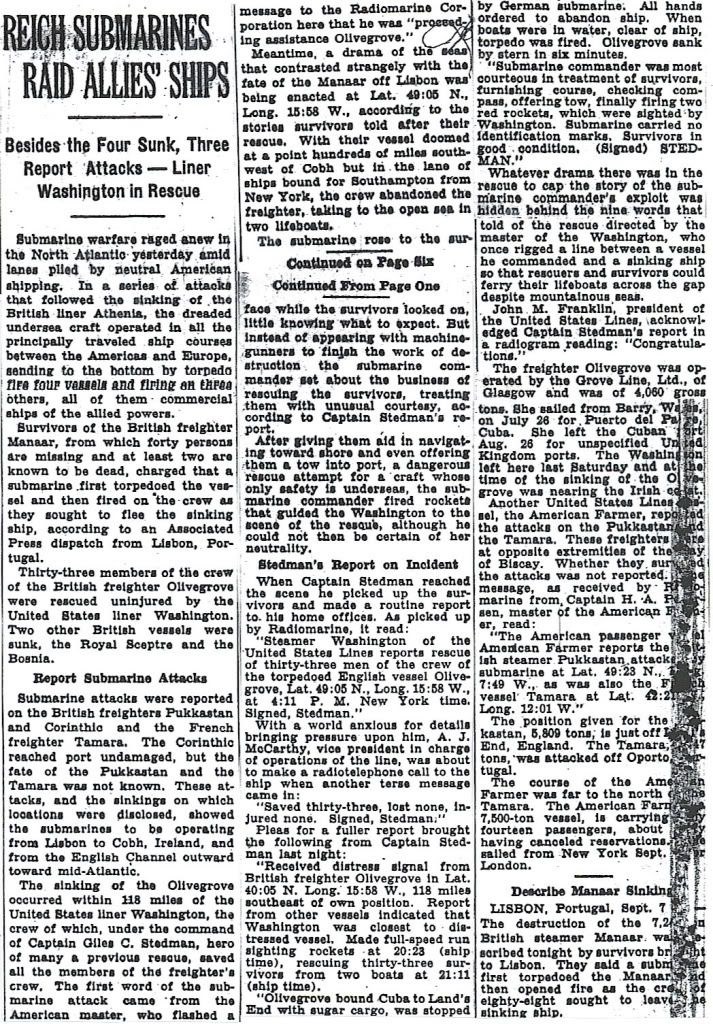
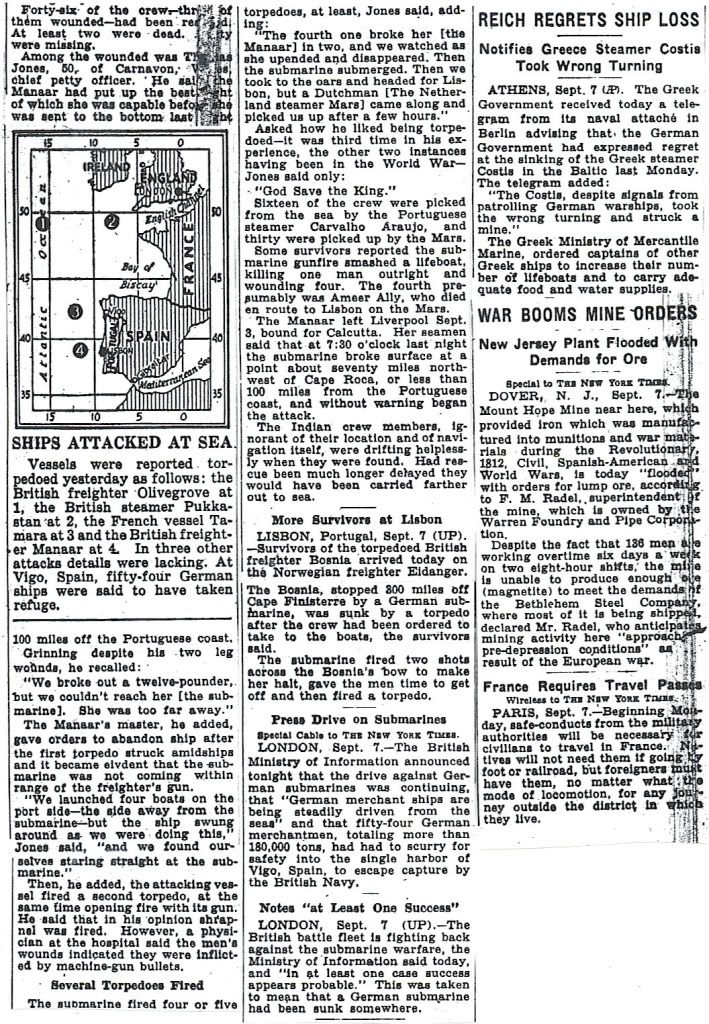
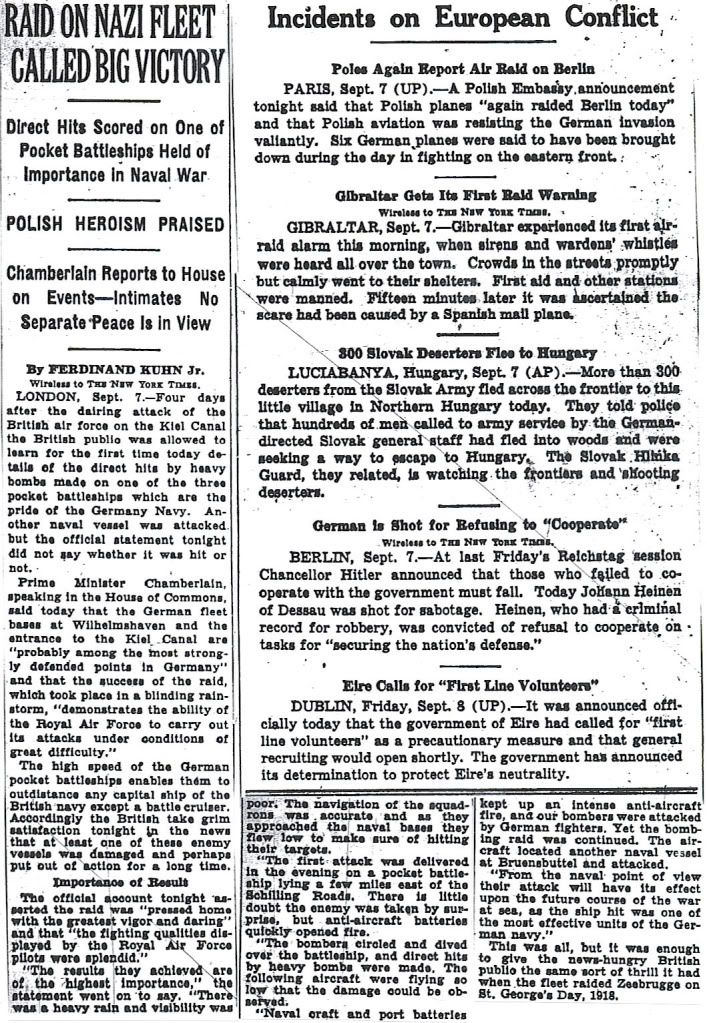
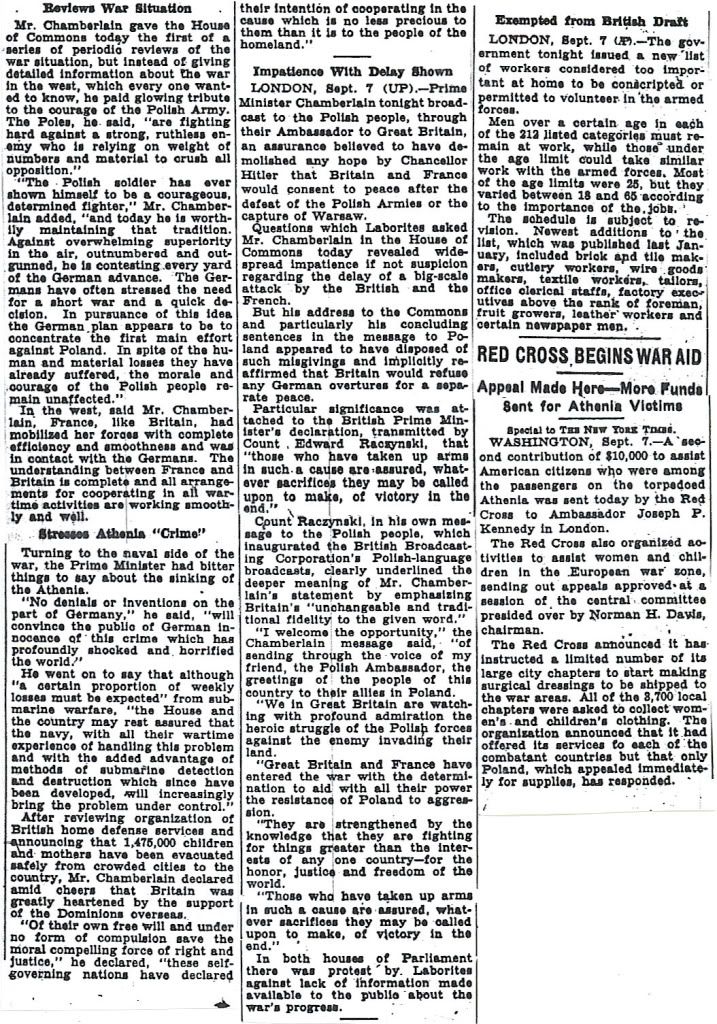
On 8 Sept., 1939 One of the most controversial War Crimes of the Polish Invasion took place.
The village of Dabrowa (near Ciepielow) was the site of a mass murder of Polish prisoners of war from the Polish 74th Infantry Regiment of Upper Silesia commanded by Major Jozef Pelc.
They were ordered to be shot as partisans by the German 15th Motorized Infantry Regiment’s commander, Oberst Walter Wessel, after the commanding officer of the 11th Company was killed by a sniper. (Wessel would be killed in Italy in 1943)
Some reports say as many as 300 were killed, but a German War Crimes Court in 1971 found that at least 250 of these were actually combat casualties.
In August 1950 Polish Military Mission in Berlin received, via Polish Consulate in Munich, 5 photos and 2 pages of typed text describing this incident. This document, titled Unser erstes Gefecht in Polen, didn’t bear any date nor autograph, but seemed to be a personal diary written by a soldier of III./IR. 15. The person that sent text and photos remained unknown.
“11. Kompanie of our Bataillon was on the spearhead in Ciepielow woods near Zwolen. We were moving ahead just behind it. I hear MGs playing. The spearhead is under fire. Dismount!... Ricochets buzz all around. Now I see that Poles are shooting as well...
Suddenly hptm. Lewinsky falls to the ground. Headshot from above. So there are marksmen on the trees. I admire their courage... After an hours time we all gather on the road. Kompanie has 14 KIA, including hptm. Lewinsky. Regiment commander Oberst Wessel (from Kassel) is raging mad. ‘What an insolence, they tried to stop us and even shot my Lewinsky dead!’. ...[Oberst Wessel] made an assertion that he had to deal with guerillas, although each and every Polish soldier wore uniform. He forces them to take off their blouses. They seem to look more like guerillas now.
He also cuts his braces, apparently to be sure they won’t run away. Next he orders the POWs to walk in a single line beside the road. A question appears - where are they being taken? To the back, to Tross that will soon hand them over to POW gathering point?
5 minutes later I heard rattle of dozen automatic weapons. I hurried in its direction and 100 m farther I saw executed 300 Polish POWs laying in roadside ditch. I risked and took 2 photos, when suddenly one of those Kradschutzen, that had been ordered to shoot POWs by Oberst Wessel, emerged just before my camera and stood proudly.”
The map in the NY Times is rather close to your actual posted map, Homer. Only one problem: the Times map reflects the situation as it existed three or four days ago. By now, it’s much worse and the news is starting to reflect it. I suspect most people now realize that Poland is a lost cause.
As for the Germans shifting divisions west? Nah...don’t think so. Not yet. But they will. Just give them time.
And the French offensive in the Saar? We discussed that yesterday. All BS.
By the way, the area of “combat operations” for the French were also fought over by the US 3rd and 7th Armies in late November/early December 1944, and again after Operation Nordwind in January and February 1945. Suffice to say that the Americans had a more difficult time clearing out the French Maginot Line forts than they did clearing the so-called “Siegfried Line.” And that was considering that the French forts faced the other way.
Oh yeah, I forgot. The Poles claim 45 divisions still intact? I don’t think they ever mobilized 45. And by this time the number of intact operational divisions in the field is probably fewer than 15.
Apparently Baghdad Bob has a Polish great-uncle.
I’ve had that problem, too. Drove me nuts.
I even tried cutting and pasting from both Word and Word Perfect; didn’t work either time. Unless you want to manually type it all out and then cut and paste....
This is why war is Hell. Soldiers in the heat of battle get inflammed and these atrocities happen. It wasn’t just the Germans. The Soviets did this, the Japanese certainly did things like this. Even some American units would take no prisoners after a hard fire-fight. A friend of my dad’s worked as an intelligence officer and was attached to an airborne division. His job was to interrogate POW’s. He complained that he didn’t have much work to do as the airborne didn’t take any.
Like Sherman said: War is Hell. Or as Lee said: It is good that war is so terrible, lest we grow fond of it.
I wonder if haupt. Lewinsky had a relative named Erich, who changed his name upon adoption to von Manstein.
abb: "On 8 Sep, 1939, the unescorted Kennebec was stopped by U-34 with two shots across her bow about 70 miles west by south of the Scilly Isles."
Cape Clear is just of Southwest Ireland.
Scilly Isles are Southwest of Cornwall -- southwestern tip of Brittish Isles.
U-29 and U-34 were both Type VIIA's, smaller than later versions. They had a range of about 8,000 miles, could make 17 knots surfaced, 8 knots submerged, could dive to 700 feet.:
Found no details on U-29, but U-34 sank 19 ships (92,000 tons), including a British destroyer and submarine.
abb: "unescorted Winkleigh (Master Thomas Georgeson) was hit by one torpedo from U-48 and sank southwest of Ireland."
U-48 was a slightly larger, faster, longer range Type VIIB.
"U-48 was the most successful U-boat commissioned into the Kriegsmarine during the World War II. During her two years of active service, U-48 sank 55 ships for 321,000 tons, and damaged two more at 12,000 tons on twelve war patrols conducted during the opening stages of the Second Battle of the Atlantic."She was a Type VIIB submarine with five torpedo tubes and an 88 mm deck gun. She was very fast and agile, thanks to her dual rudders, and could patrol for approximately a month at a time, giving her a range comfortably across the North Atlantic. "
Type VIIB:

Type VIIC (German navy memorial at Laboe):

Nice photo. Is that a surviving sub or a mock-up? The one in the illustration, U-47, will make big news next month.
Heinkel 111 droping bombs over Poland, September 1939:
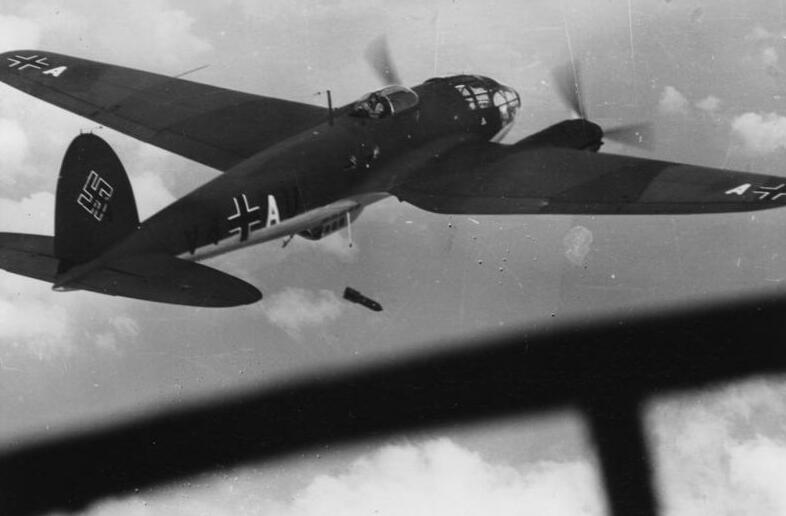
tcrlaf: "On the night of 2/3 September 1939 two Heinkel He-59s destroyed almost all of the Polish floatplanes..."
Heinkel He-59:

tclaf: "Only one Lublin R-XIII G/hydro survived"
Lublin R-XIII:

She (or is it he?) is U-995, a newer Type VIIC, built in 1943:
Then in 1971, sold back to the Germans for one DM, to become a museum ship.
Unser erstes Gefecht in PolenWas bisher war, lässt nichts Gutes ahnen, Vorgestern erschoß unser Hauptfeldwebel aus dem im Schrittempo fahrenden Pkw. mit seiner 08 einen etwa 60 bis 70 jährigen alten polnischen Bauern, der seine Kuh in den Stall führen wollte, wohl um zu verhindern, dass sie auf die Strasse lief. Er war sehr stolz auf diese Schußleistung – man bedenke – aus dem fahrenden Pkw aus 12 mtr. Entfernung.
Ich kann das einfach nicht fassen. Noch vor ein paar Wochen hat er geheitatet und war so zärtlich zu seiner Frau und so nett zu seinen alten Schwiegereltern. Ob er nur die Kuh treffen wollte ? Leider lässt, der Stolz, den er ob seiner Schießleistung nicht verhehlt, diesen Schluß nicht zu, ausserdem würde er als gewissenhafter Hauptfeldwebel, der es noch zum Officzier bringen will, konnte kaum wagen, auf den Vormarsch eine Kuh zu erschießen, die er nicht der Truppenverpflegung zuführen konnte. Das wäre ja Diebstahl am „Wehrmachtseigentum“. Da die Kollonne kurz nach dem Schuß stockte, konnte man noch beobachten, wie eine alte grauhaarige Frau sich weinend auf den toten Körpfer stürzte. Vielleicht hatte der „Held“ auch diese Frau noch erschossen, wenn der Pkw nicht gerade gestanden hätte, was ihm sicherlich weniger „Schützenehre“ eingebracht haben würde.
Am gleichen Tag, wir waren immer noch in keine Gefechtsberührung gekommen, lediglich links und rechts des Strassenrandes, (ołówek) sah man vereinzelte Verwundete Polen mit erhobenen Händen zurückkommen, erschoß Oberjäger K. aus dem fahrenden Fahrzeug Lkw einen verwundeten polnischen Soldaten, weil er nur einen Arm hochgehoben hatte. Man sah deutlich, dass der Soldat den rechten Arm schlaff hängen ließ, weil ihm die ganze rechte Schulter zerschmettert war. Er tat es aus purer Schießlust. Ich sah ihn die Maschinenpistole auf den Man anlegen und rief ihm entrüstet zu: „Oberjäger !“. Da nahm er die MP ab. 10 sek später, ich hatte gerade den Kopf nach vorne gewandt, krachte es. Der Pole brach zusammen. K. hatte sich doch nicht den Schuß verkneifen können. Wie soll ich das verstehen ?
(2) Dies waren die Heldentaten innerhalb unserer Kompanie, noch ehe ein feindlicher Schuß auf uns gefallen war.
Und jetzt im Wald von Ciepielow kurz vor Zwolen hat die 11. Kompanie unseres Batl. die Spitze. Wir folgen, Ich höre MG-Gewehrfeuer. Die Spitze ist angeschossen. Absitzen ! Irgendwie beschleicht mit Angst. Ich will ja nicht – es ist schlecht, mutig zu sein wenn man nicht weiss, warum – Nervosität, Befehle, Schützenkette, 10. Kompanie links der Strasse ! Ich mache mit. Empfinde die Gefahr, jetzt abgeknallt zu werden, als Strafe für meine unkonsequente Haltung und das beseitigt auch jedes Angstgefühl Ich latsche mit, sehe keinen Polen. Der MG-Schütze schiesst wie toll aus dem Arm. Querschläger schwirren Jetzt merke ich, dass auch die Polen schiessen. Es pfeift knapp an meinem rechten Ohr vorbei. Da drecht sich Hauptmann von Lewinskiy als erster. Kopfschuss von oben, Also Baumschützen. Ich bewundere den Mut dieser Baumschützen. Einer wird erkannt. Der Sanitäter schoss ihn mit der Pistole herunter. Da reißt die Verbindung ab. Jeder rennt kopflos durch den Wald. Eine Stunde später sammelt sich alles auf der Strasse. 14 Tote zählt die Kompanie, einschliesslich Hauptmann von Lewinskiy
Der Regimentskommandeur Oberst Wessel (Kassel) tobt, den Monokel im Auge „So eine Frechheit, uns aufhalten zu wollen, und meinen Lewinskiy haben sie mir erschossen. –
Die Landser zählen nicht bei ihm. Er stellt fest, dass es sich um Partisanen handelt, obwohl jeder der 300 Gefangenen Polen eine Uniform trägt. Sie müssen die Röcke ausziehen, So, nun sieht das schon eher nach Partisanen aus Jetzt werden ihnen noch die Hosenträger abgeschnitten, scheinbar, damit sie nicht davonlaufen können.
Nun müssen die Gefangenen ich Reihe hintereinander am Strassenrand entlanggehen. Wo führt man sie hin, war die Frage. Nach rückwärts zum Tross, der sie in die nächste Gefangenensammelstelle bringt .?
5 Minuten später höre ich 1 Dtzd schweredeutsche Maschinnenpistolen bellen. Ich eile in die Richtung, sehe 1 oo (zera ołówkiem) km mtr zurück, die 300 polnischen Gefangenen erschossen im Strassengraben liegen. Ich riskiere 2 Aufnahmen, da stellt sich einer der Kradschützen, die dises Werk vollbracht hatten im Aufrag des Oberst Ltnt. Wessel stolz vor sie Linse.
I started to translate this and realized that my German is rusty enough that it would take me an hour to do it completely (which I don't have right at the moment). If I get some time this evening I might revisit it. I took a quick look at the babelfish translation and it is pretty lousy.
At any rate this is the more interesting component I found. According to the Polish forum Odkrywca.pl these are 3 of the 5 photos taken by Oberst Walter Wessel. Hard to confirm this as fact but interesting none the less.
The 3rd Army also had a rough time clearing the fortifications around Metz which was build long before the Maginot Line and only was incorporated into it since it was already a formidable series of bunkers. If I remember right Patton had said of the entire Lorraine area that he hoped that after the was that we could give this area to Germany as part of their punishment because he could think of no worse punishment than to be the country that had to manage this area. (I know I’m paraphrasing the heck out of that).
The third photo has been dually claimed to be this incident, as well as one from Russia in 1943....
“Da drecht sich Hauptmann von Lewinskiy als erster. Kopfschuss von oben, Also Baumschützen. Ich bewundere den Mut dieser Baumschützen. Einer wird erkannt. Der Sanitäter schoss ihn mit der Pistole herunter.”
Cougar, if I’m translating this correctly, the company medic shot one of the snipers with his pistol. Seems the German Sanitater were also considered combat troops.
It would be next to impossible to confirm for sure. It does have the soldier stepping into the shot as described as Wessel though.
The “French Offensive” was a few recon units moving in to German Territory at a snail’s pace.
After the media sensationalism, they move a few bigger groups in to these areas, but then had a nightmare withdrawing them.
Knew I’d seen the bottom pic before. From AHS:
“The picture on the bottom of your posting on 12 Aug 2009 12:01, has f.e. been used twice:
1) in the book “Polenfeldzug” (1982) claiming it to be evidence for the Ciepielòw-massacre, and
2) “Chronik des Zweiten Weltkrieges” (Augsburg, 1997) claiming it to be evidence of the killing of Polisch civilians (claimed by the Germans to be partisans of the Bialystok-area) from Szailicze, Wolkowysk, 1943(!).”
That’s how it reads to me. Basically he is saying that he admires the bravery of these snipers up in the trees (for being in a vulnerable position I would guess) and then the medic shot him out of the tree with his pistol.
Not quite deserving of a NY Times headline, one would think.
“Da drecht sich Hauptmann von Lewinskiy als erster. Kopfschuss von oben, Also Baumschützen. Ich bewundere den Mut dieser Baumschützen. Einer wird erkannt. Der Sanitäter schoss ihn mit der Pistole herunter.”
I translated it as:
Captain von Lewinsky was one of the first (casualties). Headshot from above, caused by snipers in the trees. I was amazed at the courage of these tree snipers. We found one of them. The company medic shot him down with his pistol.
Just goes to prove how tough those Poles are!
Disclaimer: Opinions posted on Free Republic are those of the individual posters and do not necessarily represent the opinion of Free Republic or its management. All materials posted herein are protected by copyright law and the exemption for fair use of copyrighted works.